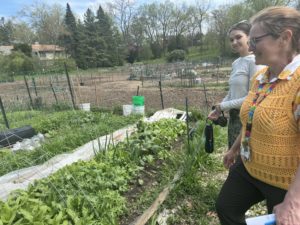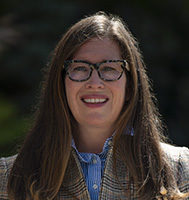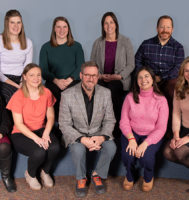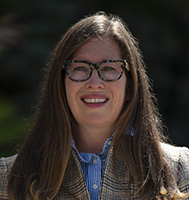
The Experimental Ethnograpghy Laboratory is dedicated to incubating data-intensive social science projects in three key areas: (1) person-centered care, (2) decision-making and (3) health disparities. Our overarching goal is to gain a deeper understanding of the cultural context for heart disease and contribute to the body of knowledge aimed at improving health outcomes, especially for those who are critically ill.
In our lab, we foster collaboration among diverse experts, including clinicians, social scientists, health scientists, community leaders, and families. Together, we work to understand histories, lives, and environments that influence contemporary health and outcome inequities.
One of our core functions is to provide comprehensive training opportunities to undergraduates, graduate students, medical students, residents and fellows where they can develop proficiency in coding, data analysis, and the presentation of both biological and ethnographic data. The structured learning environment in our lab provides trainees with the skills necessary to collaborate across disciplines and produce translational research.
Our transdisciplinary approach breaks down silos in the study of people with critical illnesses. By bridging the gap between social theory, life prolonging technologies, and the delivery of health services we aim to improve the lives of families facing critical health challenges.
Current Projects
Accessible CHD Survivor Transition Readiness For Long-Term Health (ACHD STRONG)
Congenital heart disease (CHD) is now more common in adults than children, reflecting highly effective surgical and medical therapies advanced over twenty years. But half of survivors’ face disabilities in their lifetime. So, while CHD affects 1% of the population, it represents more than 10% of healthcare expenditures in the United States. CHD survivors with disabilities are more likely to require emergency surgical procedures, be admitted to intensive care, and die prematurely. This disparity, identified by our team and others, must be addressed as we improve healthcare transition for all survivors; up to 62% of whom disengage from cardiac care as adults. Fewer high-risk patients will be lost if we identify the individual, health, and community factors that make care accessible. Accessible care is useable by the greatest number of people, but specifically designed for those with physical, sensory, and cognitive disabilities. 83% of CHD survivors experience communication, mobility, and psychosocial complications not accounted for in existing transition tools. Our research shows that women find themselves in a disability-health paradox: aging into a system of care not designed for them.
Creating CHD Long-Term Health For Parity (CCHD GAP)
Parents of children with critical congenital heart disease must decide whether to pursue (1) corrective surgery or (2) palliative interventions (which do not correct, but ideally improve, cardiovascular function). All treatment includes multiple invasive surgeries and admissions to the pediatric intensive care unit (PICU). Existing guidance presumes participation of a mother and father without accounting for additional kin or family. Our research shows that this type of traditional parental decision-making occurs in only 14% of cases. Additionally, prognostic information for CCHD is largely limited to the mortality risks of complications or relative advantage of isolated procedures. Retrospective reports of girls who survive point to a gender-health paradox: women with CCHD experience more sickness over their lifetime. They may also be less likely to receive the advanced surgical and medical therapies in childhood (heart transplant, extracorporeal life support, ventricular assist devices) that have dramatically extended life expectancy for survivors. When they do, initial outcomes are similar: a marked departure from other pediatric diseases where girls have a survival advantage. This is often attributed to biological differences between the sexes, without examination of associated gender norms that may adversely affect outcomes. Currently, we do not have a framework for understanding the lifelong consequences of the treatment decisions that caregivers must make while a child is hospitalized with CCHD. Families might make different choices if we better understood their composition, preferences, and goals of care.
Ethical, Legal, and Social Issues in the Opportunity to Reach Individuals with Genetic dyslipidemia during Infancy and the Newborn period to find Familial Hypercholesterolemia (ELSI ORIGIN FH)
1 in 300 individuals have Familial Hypercholesterolemia (FH), which if identified early, makes an otherwise fatal condition highly treatable. Universal screening during childhood is widely recommended, however fewer than 10% are found through current screening at age 8-12. Our team developed a novel two-stage screening algorithm using deidentified newborn dried blood spot specimens. Yet the benefits and harms of disclosing results to family members and their newborns, and policy implications, remain understudied.
Our community-based research will examine the ethical, legal, and social issues of FH diagnosis. Integrating ethnographic findings into FH research that engages children, parents, survivor leadership, clinicians, hospital, and invested public health actors will significantly improve our understanding of disparities the natural history of FH and enhance anthropological understanding of newborn biological variation.
Research News

Shapiro scholars join Department of Pediatrics for summer research experience
This summer, 13 medical students will join Department of Pediatrics faculty mentors for an immersive research training experience through the Shapiro Summer Research Program. The program is designed to educate students about the process of …
June 2, 2025
Krisjon Olson wins Office of the Vice Chancellor for Research’s Fall Competition for HEART-WISE research
Krisjon Olson, PhD, assistant professor, Division of Cardiology, was a recent recipient of the Office of the Vice Chancellor for Research’s Fall Competition. An award in the amount of $65,481 will support her project, “Insuring …
February 27, 2025
UW Health Transplant Center launches pediatric heart transplant program
Last month, UW Health announced a new pediatric heart transplant program at American Family Children’s Hospital. The new program makes the UW Health Transplant Center one of only six centers in the nation — and …
July 7, 2023
Krisjon Olson appointed BIRCWH Scholar
Krisjon Olson, PhD, was recently appointed to the Building Interdisciplinary Research Careers in Women’s Health (BIRCWH) Scholars Program. This program, funded by the Eunice Kennedy Shriver National Institute of Child Health & Human Development (NICHD) …
October 6, 2022- More Olson Research Group News posts

